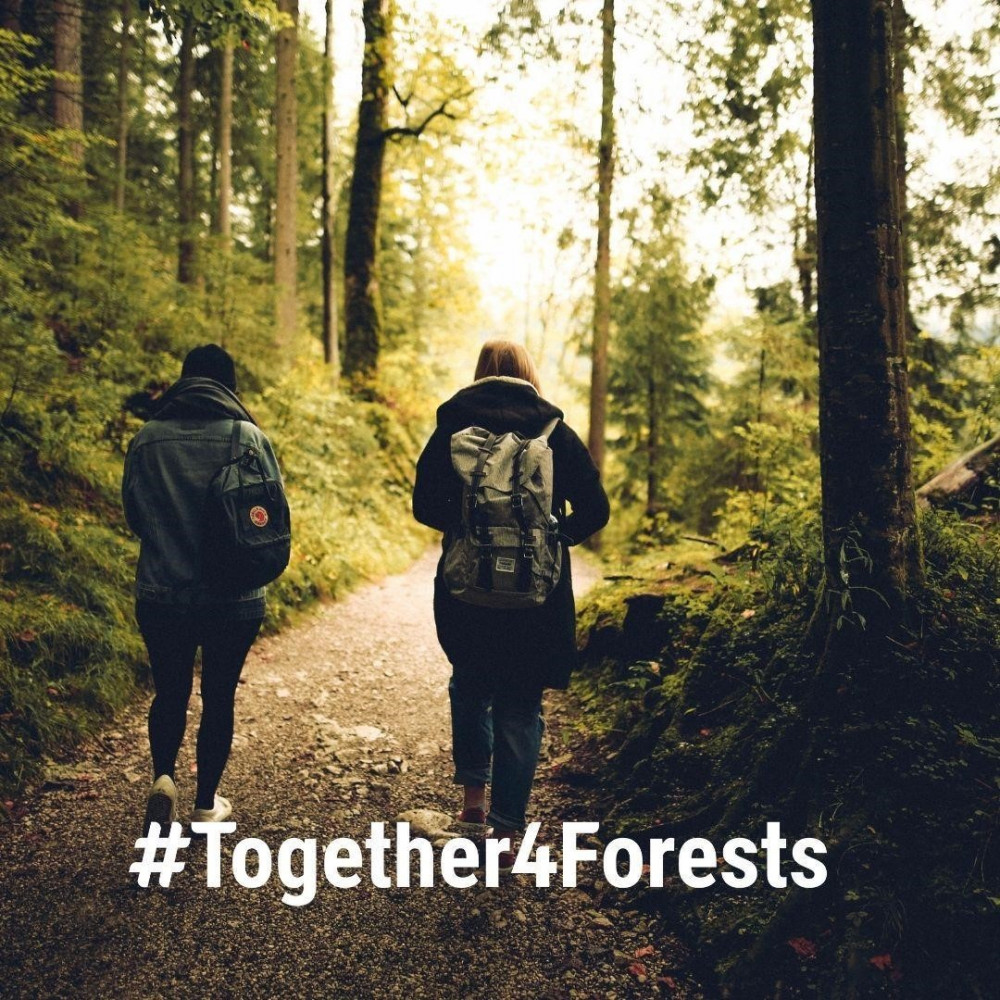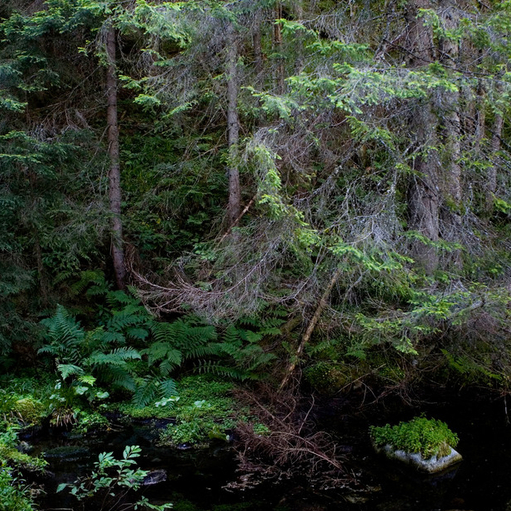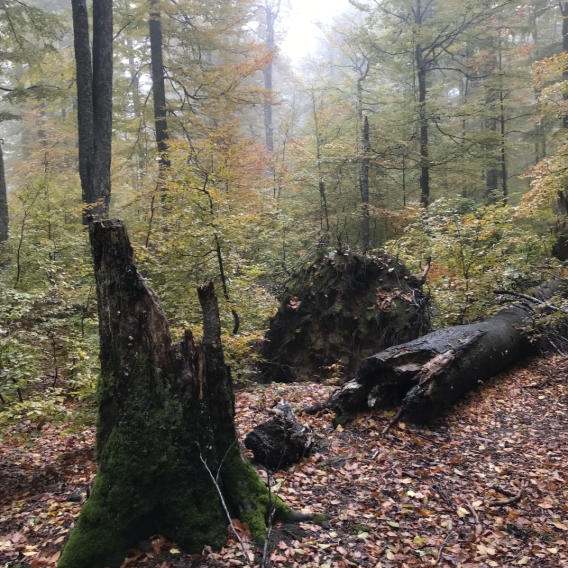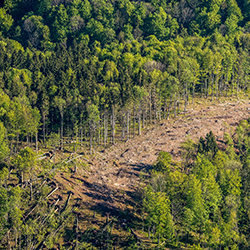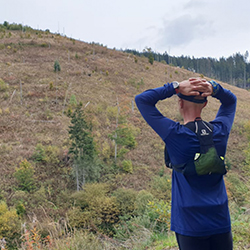
However, forests, wild savannahs and other precious ecosystems are being destroyed at an alarming rate. This devastation is directly connected to the meat, dairy, palm oil, coffee and chocolate we eat in Europe.
In 2017, the EU was responsible for 16% of deforestation associated with international trade, totalling 203,000 hectares and 116 million tonnes of CO2. The milk in your cappuccino, the chocolate in your cookies, the roast chicken you eat on Sundays, and many more of your favourite meals, are fueling this destruction. Because of the unsustainability of EU supply chains, we’re unwittingly destroying our planet.
But we have a unique chance to change this. Right now, EU governments are discussing new legislation. This new law has the potential to reduce the impact of EU consumption on nature and human rights, as well as to hold companies and financial institutions accountable… But only if it is strong enough.
More than 53, 000 citizens sent letters to ministers from across the EU asking for a loophole-free EU deforestation law in March 2022. Will ministers answer with a strong EU deforestation law? We will continue to mobilise to ensure policy-makers increase the level of ambition. Your support can make all the difference - watch this space and join the #Together4Forests movement!
Please find below WWF recommendations for the Proposals of the European Commission:
- EC proposal for a regulation on deforestation-free products - A comprehensive product scope
- EC proposal for a regulation on deforestation-free products - Strong implementation and application by Member States
- EC proposal for a regulation on deforestation-free products - Traceability - supply chain towards the point of production
- EC proposal for a regulation on deforestation-free products - Integration of other ecosystems
STAY TUNED ...
|
Image: © XXXXX |
How is the EU driving deforestation outside its borders?Agriculture is the main driver of deforestation, accounting for 80% of deforestation around the world. The EU’s demand for imported agricultural products has been a major contributor to tropical deforestation. In particular through imports of palm oil from South East Asia and soy, sugar and beef from Latin America. Coffee, cacao and rubber imports are also contributors to deforestation. Overall, the EU is responsible for around 10% of the global share of deforestation, and the EU is the world’s second-largest market for these forest-risk commodities after China. The EU is also home to major financial institutions that invest in the harmful agribusinesses who turn a blind eye to ecosystem destruction. According to Global Witness’ investigations, from 2013-2019, EU-based financial institutions were among the main sources of funds to some of the world’s most harmful agribusinesses, directly or indirectly involved in deforestation in the Amazon, Congo Basin and Papua New Guinea. |
|
Image: © Michel Gunther / WWF |
What is a strong EU law?We need a law that stops the destruction of nature due to EU consumption of commodities like palm oil, soy, cocoa, beef, coffee and rubber. Such a law should also apply to financial institutions that operate in the EU and that are enabling forest and ecosystem destruction, including human rights violations.
The ecosystems that are affected by destructive agricultural practices to serve the EU market include forests, savannahs, grasslands and wetlands. Around the world, some of the most severely affected areas are the Amazon, the Cerrado and the Atlantic forest in Brazil; the Gran Chaco in Argentina and Paraguay; the rainforests in Indonesia and Malaysia and forests in West and Central Africa including Ghana and Côte d’Ivoire.
A strong law also means that there are no human rights abuses connected to the commodities and financing – for example the eviction of local communities from their land.
|
|
Image: © Peter Barath |
How much forest and nature are we actually losing?Since 1990, the world has lost 178 million hectares of forest. Annually, we lose an area of forest around the size of Greece. Moreover, recent data from Global Forest Watch shows a nearly 3% increase in the loss of primary forest – forest that has never been logged – in 2019 compared to 2018.
According to the FAO, “deforestation and forest degradation continue to take place at alarming rates, which contributes significantly to the ongoing loss of biodiversity.” Most of this forest loss is driven by the expansion of commercial cropland, pastures, and tree plantations. We are also losing savannahs, grasslands, peatlands and wetlands. Just like forests, these natural habitats are rich in plant, bird, amphibian and animal life. They can also store large amounts of carbon and help us fight climate change. But they too are being destroyed. For example, the Brazilian Cerrado, the most biodiverse savannah in the world, is being destroyed at twice the rate of the Amazon. This has disastrous consequences for biodiversity, climate and our survival. It is vital for an EU law to protect these areas too - a law on forests alone could simply shift the problem of ecosystem destruction in forests to these areas. |
|
Image: © Tomáš Hulík |
Is there a link between deforestation and pandemics?Shrinking forests are threatening our health because we are losing a natural barrier to the spread of diseases. Deforestation means wildlife relocates closer to humans, increasing disease transfer risk. Cutting down tropical forests also expands the habitats for mosquitoes which can carry diseases like malaria and dengue. In fact, land-use change, including deforestation and the modification of natural habitats, is held responsible for nearly half of newly emerging zoonoses – diseases that jump from animals to humans. |
|
Image: © WWF-Romania |
Why is fighting human rights violations essential to tackling deforestation?Around 1.6 billion people globally rely on forest resources for livelihoods and shelter, of those, around 300 million are Indigenous Peoples and local communities. But many people are losing their homes and their lives because of deforestation. These people have the knowledge to manage their forests wisely – they can be guardians of the forest, savannahs and grasslands.
A new EU law is vital to reducing the EU’s nature destruction footprint. But, the EU must also strengthen its cooperation with the countries that produce the goods the EU imports to tackle ecosystem destruction and the related human rights violations. Active engagement with Indigenous Peoples, local communities, governments and businesses to address the underlying challenges will help protect the last remaining pristine areas of nature – and the people that depend on them. |
